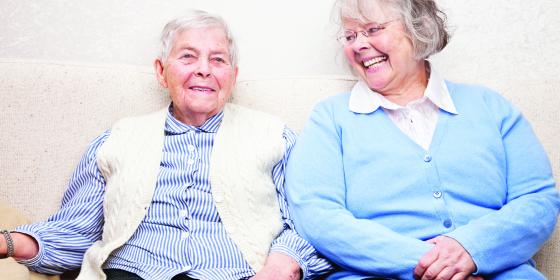 Free Personal Care: Reflections from Scotland
Free Personal Care: Reflections from Scotland
Earlier this year, before the COVID-19 pandemic, I had the pleasure of speaking to people in Scotland about social care and more specifically, the policy of free personal care [1]. It is these conversations that fed into our new policy briefing Free personal care: Insights from Scotland. This piece of work, published today, gives us a greater understanding of how one of the most commonly discussed options for social care reform might work in England.
Positive feelings
As someone who has worked in social care policy for a few years I have become very used to people talking in largely negative terms about social care. Whether it’s focus groups, interviews, or just causal chats with people, the perception of social care in England is often negative. So, it was surprising to hear such positivity about social care from my interviewees Scotland.
There were many advantages that people attributed to free personal care (all of which can be found in our new briefing) but one of the standout views that caught my attention was a sense of pride that people felt that Scotland had adopted this policy. People felt that by making help with personal care tasks free, Scotland was sending a message that they would take care of everyone in need of such fundamental help. It was a message that the people I spoke to felt pride in and said it showed what Scotland as a society valued everybody regardless of wealth.
“My goodness, who wouldn’t want the basics covered? Yes, I’m probably proud that it’s something we have in place in Scotland. Yes, I’m proud.” Anonymous
“I think it’s a very positive message for a society, that it’s going to care for its frailer population, isn’t it? And that’s a good thing.” Director of adult social care
Comments like these suggest that a universal entitlement to care like free personal care - or something even more comprehensive - could be the basis of a care system in England that brings all of society together. This could offer a chance for our social care system to be a source of societal pride, rather than political embarrassment.
Problems remain
However, it was clear that free personal care isn’t working perfectly in Scotland. One of the most challenging problems our review highlighted in Scotland’s system is the difference between receiving free personal care in a care home and in your own home. While receiving free personal care at home means you are not charged for services, the same cannot be said for residential care. If you receive free personal care in a care home, you simply get a flat rate of £174 taken off your overall bill. The truth is this doesn’t adequately cover the cost of personal care.
Several people told me they felt like the ‘free’ part of the title wasn’t accurate – in truth it was more like a personal care subsidy. It was telling that the issue here was not just the large bill people still faced but the fact they felt lied to – that the Government was taking credit for a universal offering that wasn’t actually the reality in all personal care delivery. This is a key reminder that any social care reform in England must be crystal clear, accurately communicated and fair across different care settings.
The bigger picture
Perhaps the most valuable lesson from our conversations in Scotland is the vital reminder that addressing personal care costs is just one part of a much larger picture. We heard about issues with accessing wider care that falls outside of ‘personal’ care, the difficulties in constantly changing care workers and of course many of the financial challenges facing local authorities and care providers. All these issues have a negative impact on individuals experiences of care, and in some cases mean people do not get the care and support they desperately need to live an independent and fulfilling life.
Acknowledging that personal care is just one part of the reform picture is absolutely vital for any Government wishing to truly tackle the social care crisis that has been left unresolved for decades.
What next?
These conversations have further strengthened our belief that social care reform must be wide ranging and seek to address the various problems that have long-faced the sector. An entitlement to care that is free at the point of use is clearly a key part of that, but so too is dealing with problems with access, workforce and the significant funding shortfall.
Many Governments have waited to reform social care. Their hesitation has meant that one simple policy change is not enough to transform the social care system and the long-awaited reform must now encompass a variety of solutions to ensure all those who rely on the system receive the care they need.
For more information about Independent Age’s work on social care reform please visit: https://www.independentage.org/lets-get-personal-for-free-personal-care
[1] Free personal care has been available in Scotland for all people aged 65 and over since 2002. The policy is designed to ensure everyone in need of help with tasks such as getting in and out of bed or going to the toilet get support for free.
